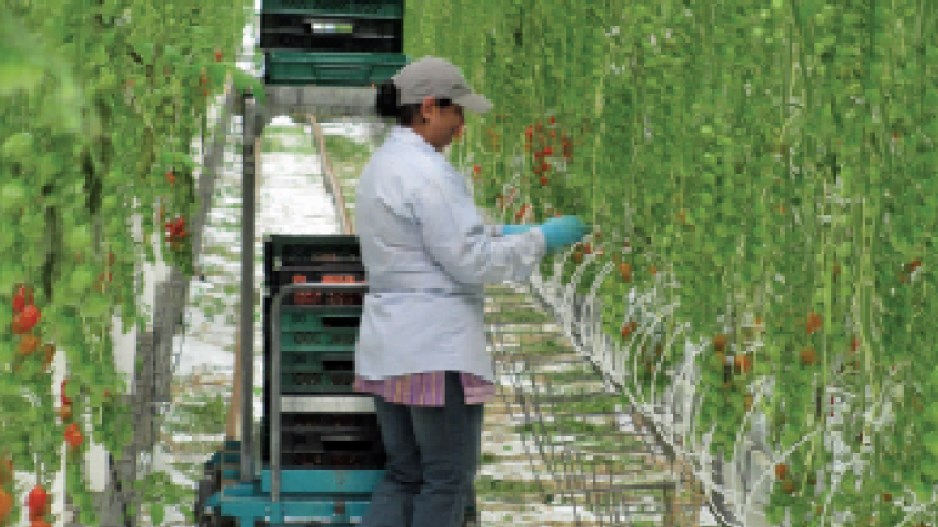The authors of a new study on British Columbia’s carbon tax say their work shows that farmers may not need an exemption from the tax to stay competitive.
“The main result is that we can find no statistical evidence whatsoever that the carbon tax had any positive or negative affect on the agricultural sector in terms of international trade,” Brandon Schaufele, an economist at Western University, told Business in Vancouver.
Schaufele and Nicolas Rivers, a professor at the University of Ottawa, examined data from Statistics Canada, Industry Canada and Environment Canada from 1990 to 2011. They compared B.C.’s trade with the agricultural exports of other provinces and adjusted for commodity price swings, interest rate changes and weather.
Schaufele, who previously co-authored a study with Rivers that showed B.C.’s carbon tax led to a drop in gas consumption, said the results call into question the rationale for exempting greenhouse growers from having to pay the tax.
The B.C. government introduced rebates for greenhouse and flower growers in 2012, and in January 2014, exempted the coloured gasoline and coloured diesel fuel used on farms from the tax.
Greenhouse growers heralded the rebates as vital to their businesses because they were being charged for carbon dioxide they must produce for plant growth, even though the C02 is absorbed by the plants. Some B.C. growers have chosen to build new greenhouses in the United States, in part because of the carbon tax.
Linda Delli Santi, executive director of the B.C. Greenhouse Growers Association, said that before the rebates were introduced, many smaller growers were forced to stop operating because "the profit they were making was going to the carbon tax."
While B.C. currently has one of the strictest carbon tax regimes in North America, California recently introduced a cap-and-trade system and other states in the Pacific region have signaled their intent to follow B.C.’s lead. Schaufele said that the carbon tax may actually help B.C. farmers by making them more competitive in the future.
“Because British Columbia’s been addressing this issue for six years now, producers have adapted,” Schaufele said.
“They’ve bought more fuel efficient machinery. They’ve introduced new processes that are more efficient and less greenhouse gas intensive. On this front, they are ahead of the curve compared to their southern U.S. neighbours.”
Australia recently scrapped its carbon tax, a high-profile move that is expected to have an impact on other jurisdictions that are considering whether to introduce a similar tax. Many economists and environmental groups say pricing carbon is key to reducing greenhouse gas emissions.
Schaufele said B.C.’s experience demonstrates what will and will not happen if regions introduce ways of pricing carbon.
Schaufele and River’s research was published by the Pacific Institute for Climate Solutions, a collaboration between the University of Victoria, Simon Fraser University, the University of British Columbia and the University of Northern British Columbia.
@jenstden




